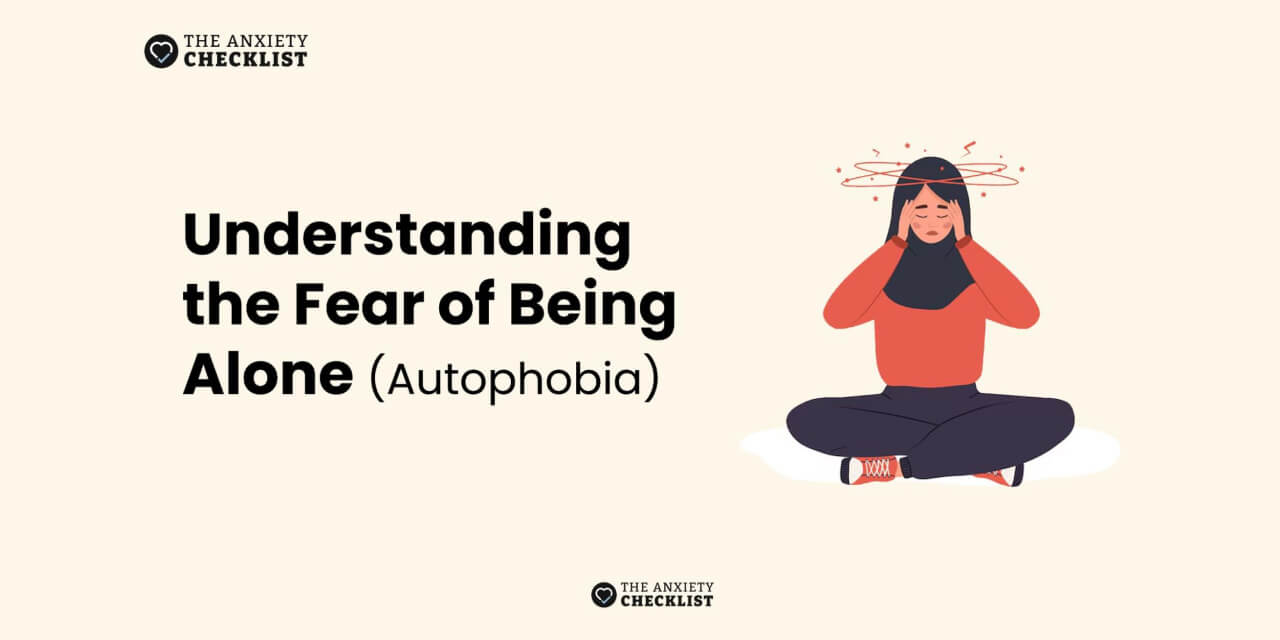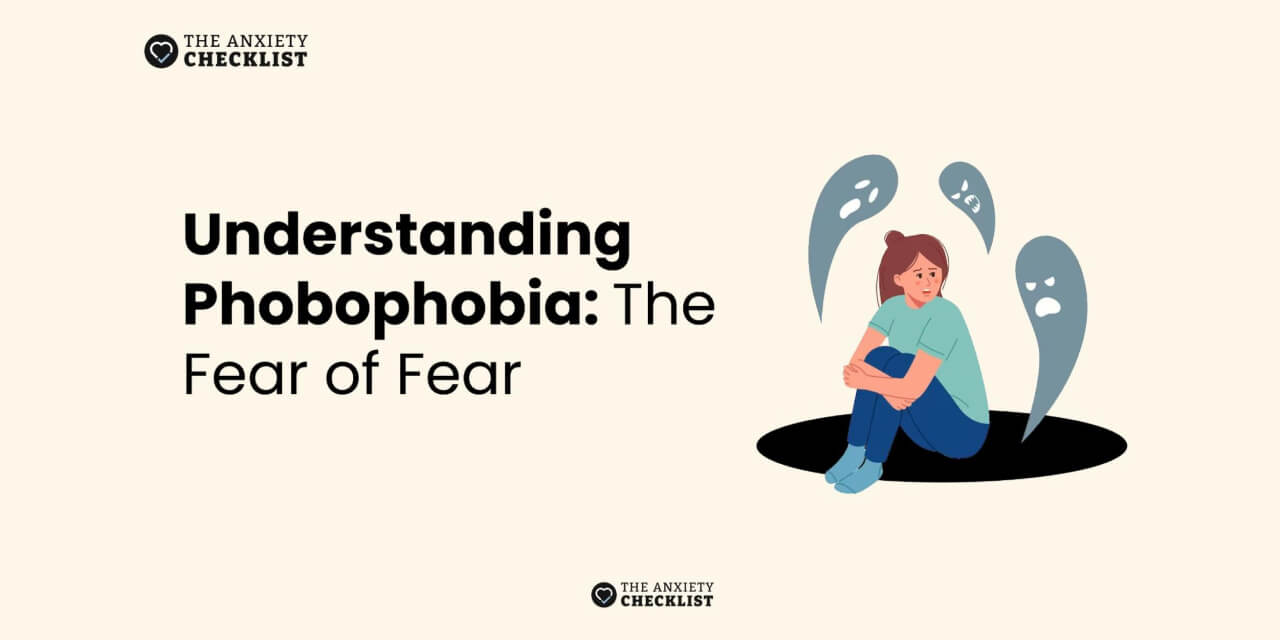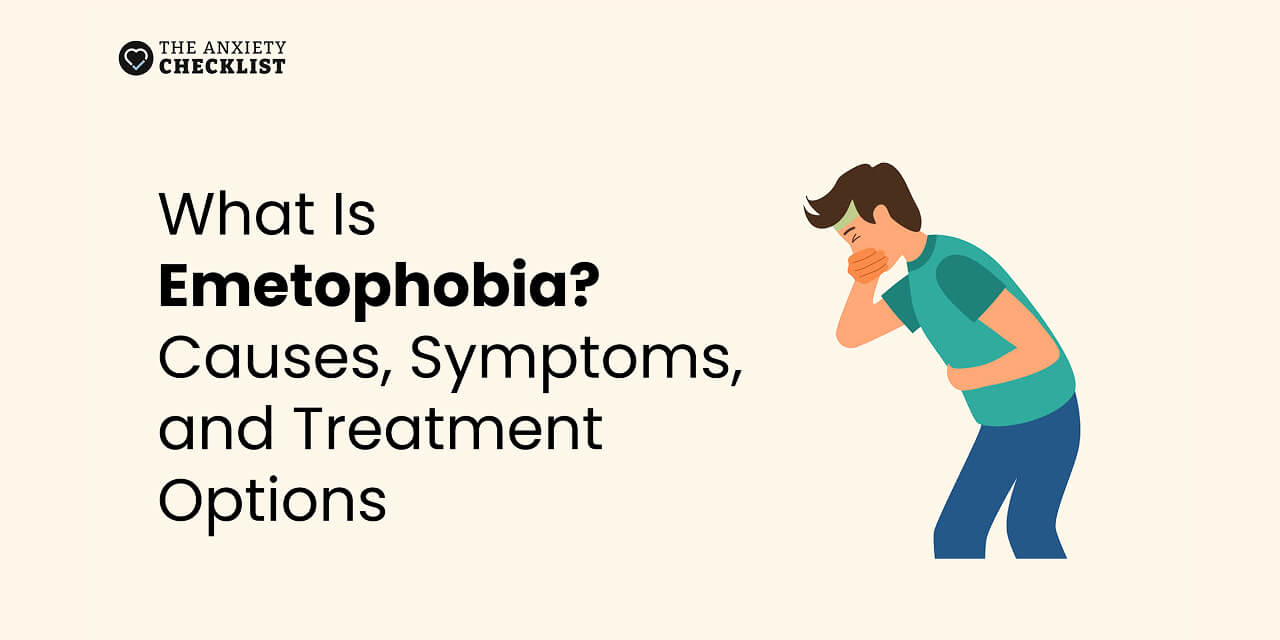What Is Autophobia?
Autophobia, sometimes referred to as monophobia, is not a formal diagnosis in the Diagnostic and Statistical Manual of Mental Disorders (DSM-5) but is commonly used to describe an intense fear or anxiety associated with being alone or feeling isolated. While not a standalone condition, it often appears alongside anxiety-related disorders such as generalized anxiety disorder (GAD), separation anxiety, panic disorder, or specific phobias.
Unlike a healthy desire for connection, this fear can persist even when an individual is physically safe or surrounded by others. People who experience autophobia may:
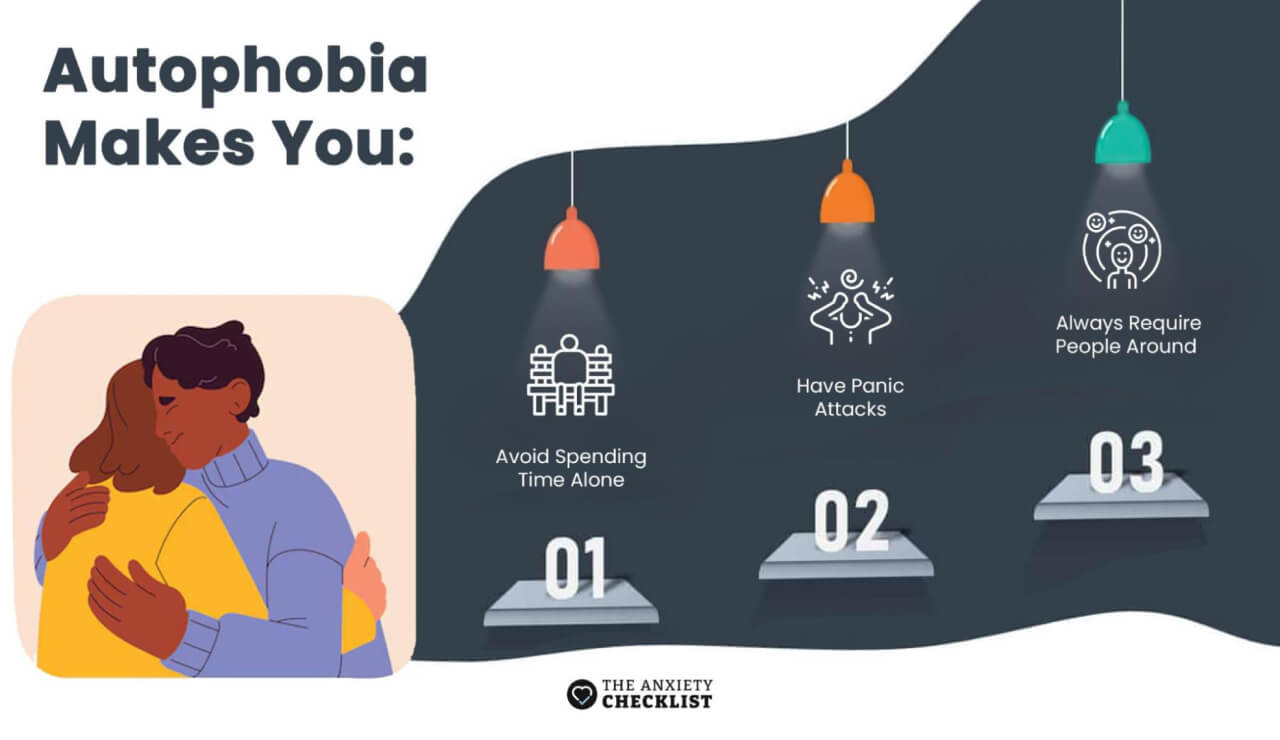
The Emotional and Behavioral Impact
The fear of being alone can create a self-perpetuating cycle:
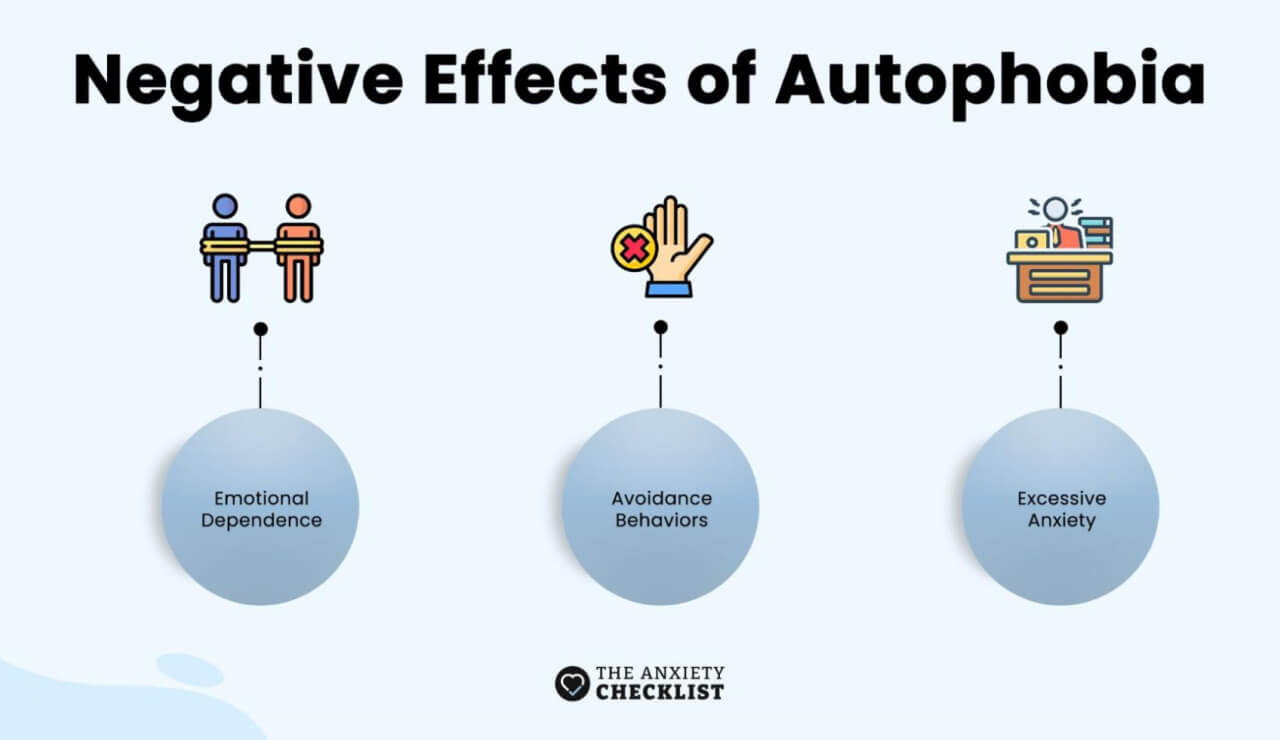
Breaking Free from the Fear
Understanding and overcoming autophobia requires addressing both the fear itself and the underlying factors driving it. Here are some effective approaches:
Treatments and Techniques
- 1.Cognitive Behavioral Therapy (CBT): CBT helps individuals challenge irrational fears and develop healthier ways of thinking about solitude.
- 2.Mindfulness and Meditation: Practicing mindfulness can help individuals stay present and reduce the emotional intensity of being alone.
- 3.Gradual Exposure: Slowly increasing time spent alone in safe, controlled environments can help desensitize individuals to their fear.
- 4.Lifestyle Changes: Building self-confidence through hobbies, fitness, and personal achievements can reduce dependence on others for fulfillment.
- 5.Support Networks: While the goal is to become comfortable with solitude, maintaining healthy social connections can provide balance and reassurance.
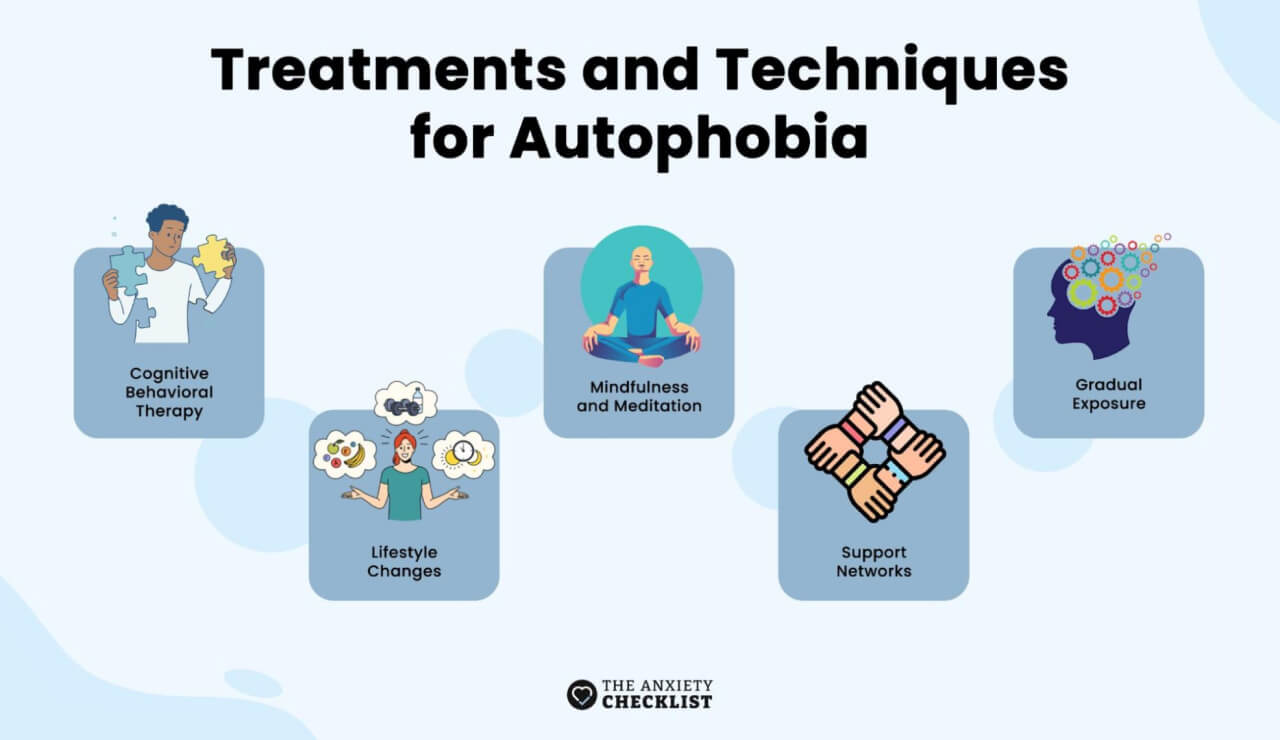
Is anxiety holding you back from the life you deserve?
Examples and Testimonials
Fear of being alone can manifest in many ways—some subtle, some deeply disruptive. Take, for example, an individual who avoided being home alone to the point of consistently arranging overnight stays with friends or family. Over time, this pattern strained their romantic relationship, as their partner began to feel emotionally sidelined. With the support of a therapist, this individual began a structured CBT protocol with gradual exposure, eventually learning to enjoy solo activities like journaling and nature walks. This shift not only reduced avoidance but helped restore balance and intimacy in their relationship.
In another case, a client remained in a toxic relationship—not out of love, but due to an overwhelming fear of isolation. Through mindfulness-based strategies and self-affirming behavioral activation, they developed internal security and ultimately broke free from the cycle of dependency. Over time, they reported a growing sense of confidence in their ability to be alone and feel whole.
These individual stories reflect broader patterns now backed by research. A 2020 study by Ventura-León et al. developed and validated the Brief Scale of Fear of Loneliness (BSFL)—a psychometric tool designed to measure the fear of being alone in young and adult populations. Results showed strong reliability and revealed significant correlations between fear of loneliness, self-esteem, and anxiety-related symptoms. In short: fear of loneliness is not just a feeling—it’s a measurable construct that impacts mental health in profound ways.
Sometimes, this fear takes on surprising shapes—like being unable to drive alone despite having no issues when accompanied. This overlap suggests an intersection between autophobia and specific phobias, such as driving anxiety. You can explore that further in our driving anxiety article.
A Holistic Approach: The Anxiety Masterclass
We understand that fears like autophobia can feel overwhelming. Our Anxiety Masterclass provides a structured path to recovery, offering tools and strategies to:
Thousands have transformed their lives with the help of the Anxiety Masterclass. You can too.
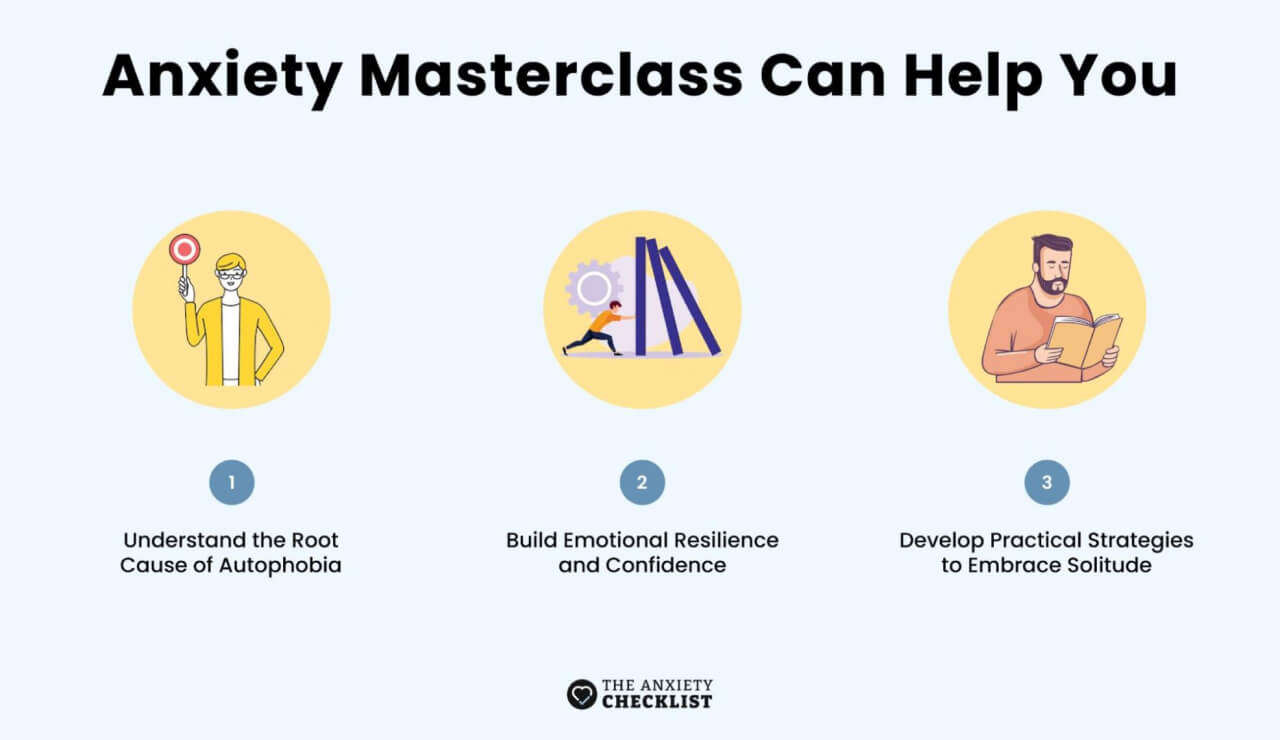
Connecting the Dots
If you’re just beginning your journey to understanding anxiety, explore our Getting Started section for foundational insights into anxiety disorders and their impact. For stress reduction strategies, our articles on breathing exercises, meditation, and lifestyle changes can offer immediate relief. And if specific fears like phobophobia resonate with you, our Common Phobia section provides targeted advice to help regain control.
Take the First Step Today
Citations
Ventura-León, J. L., Salas-Valer, A., Caycho-Rodríguez, T., & Barboza-Palomino, M. (2020). Brief Scale of Fear of Loneliness: Development and psychometric evidence in youth and adults. Frontiers in Psychology, 11, 583396. https://doi.org/10.3389/fpsyg.2020.583396

Advertisement
BetterHelp
BetterHelp makes starting therapy easy. Get a tailored therapist match based on your needs and preferences - in as little as 24 hours!
Enjoy 20% off your first month with code "anxietycheck"

4 million+ Helped
Access Therapy 24/7
Preferred by 94% of users
If you are in a crisis or any other person may be in danger - don't use this site. These resources can provide you with immediate help.


